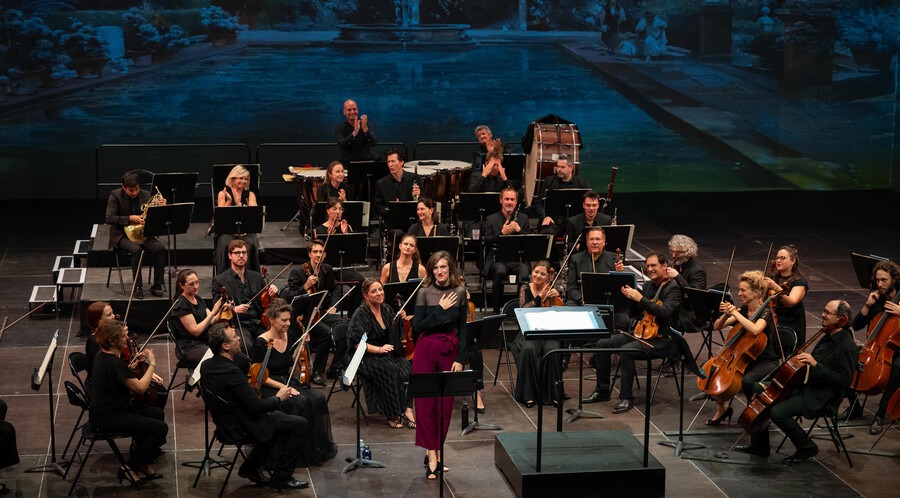
© Festival Berlioz – Bruno Moussier
Romantic triptych at the Berlioz Festival
Alexandre Valette - 27th August 2025
In the courtyard of Louis XI Castle in La Côte-Saint-André at the Berlioz Festival, Claire Gibault and her Paris Mozart Orchestra offer a concert in chiaroscuro between romanticism, lyricism and intensity, bringing together Schubert’s Death and the Maiden, melodies by Berlioz performed by Victoire Bunel, and Beethoven’s 8th Symphony.
From the outset, with Franz Schubert’s Death and the Maiden in Gustav Mahler’s version for string orchestra, Claire Gibault’s conducting is vibrant, almost choreographic. Her gestures combine firm momentum for the accents, open arms suspended for the more lyrical passages, and gestures of closeness for the openings, to the point of singing the phrases with the musicians. The sound texture is finely crafted, the transitions polished, the dynamics refined. For Berlioz’s melodies, she switches to conducting with a baton, a choice that is both technical (change of formation) and aesthetic: the baton allows for more concentrated tension and more energetic support for the voice. Finally, in Beethoven’s Symphony No. 8, the conductor abandons the score altogether and establishes direct contact with the musicians. Her authority is flexible, generous and embodied. The music flows smoothly with a broad, never stiff beat, with constant attention to collective breathing. At the end of the concert, she steps down from her podium to thank the musicians individually in a gesture of gratitude.
The Paris Mozart Orchestra, under the leadership of its conductor, is fully committed to musical dramaturgy. The ensemble breathes, the strings play in unison, the sections blend into a homogeneous, moving, contrasting whole, demonstrating both flexibility and dynamism. The cohesion remains solid, even if the visual projections are less convincing with Beethoven. For Berlioz’s melodies, the images illustrate the landscapes of the text, prolonging the poetic evocation. In Schubert, landscapes of ruin gradually paint a spectral and sensual universe.
It is in the second part that mezzo-soprano Victoire Bunel takes to the stage. From the very first notes, she asserts herself with confident projection, a rich lyrical voice and powerful, accurate high notes. Her flexible and expressive vibrato complements her careful phrasing, punctuated by delicate attacks. Her diction is clear, her stage presence evident: she addresses the audience directly, inviting them to enter into the text. The melismas are masterful and supported by attentive accompaniment. Her vocal line is as if sculpted by her hand, constantly supporting the emotion.
(…)